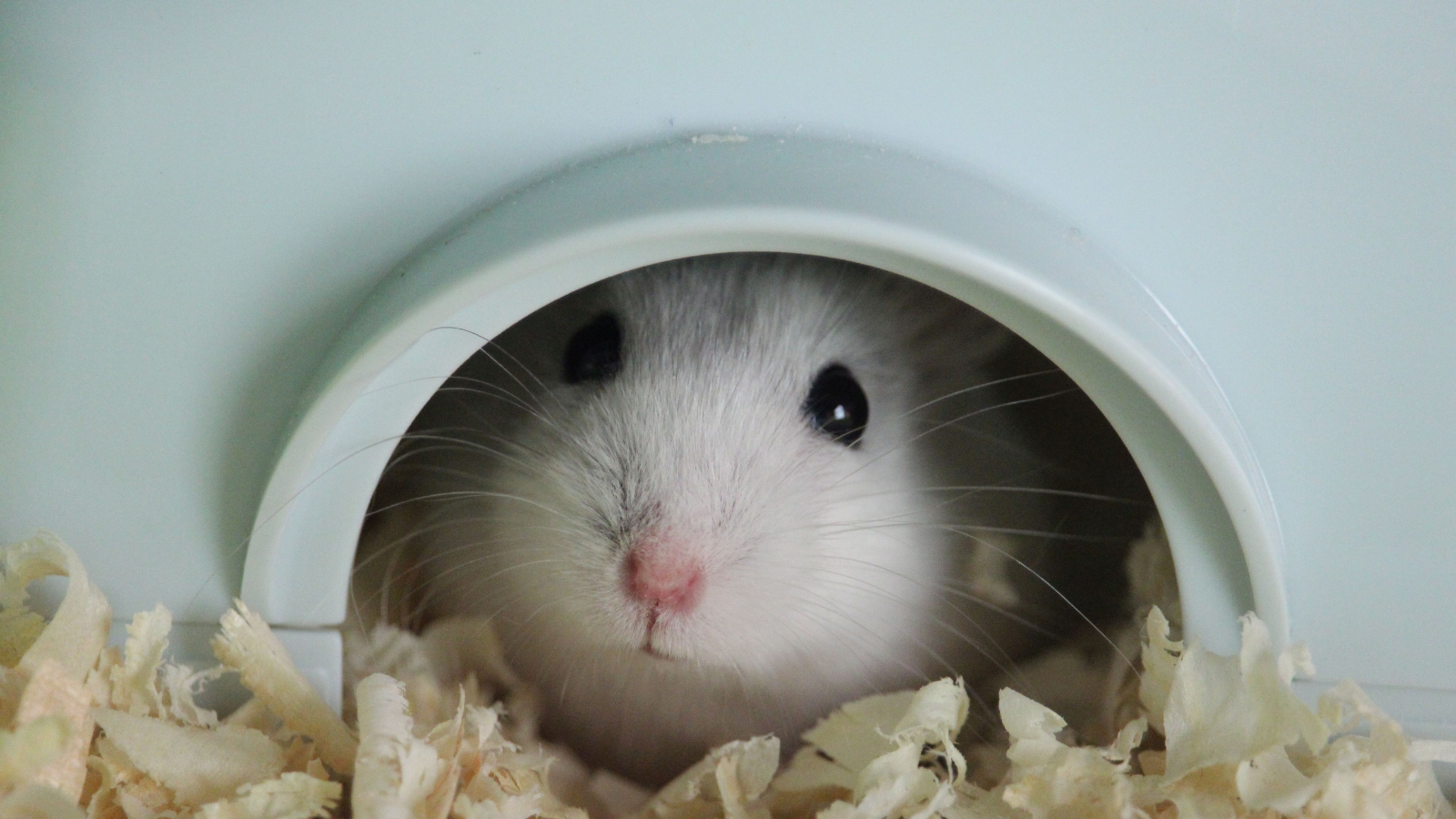Is My Small Mammal Pet Sick?
Is My Small Mammal Pet Sick?

When it comes to caring for hamsters, rabbits, guinea pigs, ferrets, and other small mammals, early detection of illness can matter a lot. Unfortunately, small mammal behavior isn’t always clear, making it hard for pet owners to know when something’s wrong. The Bird and Exotic Hospital in Greenacres, FL specializes in caring for sick small mammal pets with diagnostics, compassion, and a species-specific approach. This guide has tips for exotic pet owners so that you can spot red flags early and take action when your pet needs it most.
Signs of a Sick Small Mammal Pet
Rabbits, ferrets, and pocket pets are often prey animals by nature. This means that they tend to hide weakness or pain, a survival instinct that often complicates home care. Subtle changes in eating, behavior, or posture could be signs of a deeper issue. Knowing what to look for in your small mammal can make all the difference. Here are just some of the common signs that your exotic pet may be ill:
- Decreased appetite or refusal to eat
- Smaller, fewer, or misshapen droppings
- Weight loss or muscle wasting
- Labored breathing or nasal discharge
- Head tilt, stumbling, or disorientation
- Overgrown teeth, drooling, or facial swelling
- Patchy fur, crusty skin, or excessive scratching
- Lethargy or abnormal hiding behavior
- Unusual vocalizations or behavioral changes
If your small mammal pet displays any of these signs, contact an exotic veterinarian for urgent care services.
Health Problems in Rabbits and Other Small Mammals
Dental Conditions
Many small mammals, including rabbits and rodents, have teeth that grow continuously. Without proper wear, teeth can become overgrown or misaligned, leading to pain, infection, or difficulty eating.
Respiratory Infections
Often triggered by stress or poor ventilation, respiratory infections like “snuffles” can present as sneezing, eye or nose discharge, and noisy breathing. These can worsen quickly and should be treated early by a small mammal veterinarian.
Gastrointestinal Stasis
This serious condition occurs when a guinea pig’s or rabbit’s digestive system slows or stops. Triggered by stress, poor diet, or dental pain, GI stasis requires immediate veterinary care to avoid life-threatening complications.
Parasites & Skin Infections
Mites, lice, and fungal infections can cause itching, bald patches, or skin inflammation in your small mammal pet. These are highly treatable conditions but require proper diagnosis and treatment.
Ear Infections
Common in certain species like lop rabbits, ear infections can lead to head tilt or balance problems. Prompt veterinary care prevents progression and discomfort.
Urinary Tract Problems
Blood in urine, straining to urinate, or a strong odor may signal stones or infections, especially in guinea pigs and ferrets (although issues can occur in any small mammal pet). These conditions can escalate if untreated.
How to Monitor Your Small Pet at Home
- Keep a log of food, water intake, and elimination
- Weigh your pet weekly; weight loss can be a warning
- Provide species-specific diets and enrichment
- Clean enclosures regularly to prevent illness
- Schedule annual exams even if your exotic pet appears healthy
Sick Care for Small Mammal Pets in Greenacres, FL
Small pets need big care. Whether it’s a rabbit with overgrown teeth or a guinea pig showing signs of respiratory illness, every moment counts. The Bird and Exotic Hospital has urgent care services for rabbits, ferrets, and pocket pets in Greenacres as well as small mammal pets from Lake Worth, West Palm Beach, and neighboring areas. Concerned that your pet may be ill? Contact us to schedule an emergency appointment.
When it comes to caring for hamsters, rabbits, guinea pigs, ferrets, and other small mammals, early detection of illness can matter a lot. Unfortunately, small mammal behavior isn’t always clear, making it hard for pet owners to know when something’s wrong. The Bird and Exotic Hospital in Greenacres, FL specializes in caring for sick small mammal pets with diagnostics, compassion, and a species-specific approach. This guide has tips for exotic pet owners so that you can spot red flags early and take action when your pet needs it most.
Signs of a Sick Small Mammal Pet
Rabbits, ferrets, and pocket pets are often prey animals by nature. This means that they tend to hide weakness or pain, a survival instinct that often complicates home care. Subtle changes in eating, behavior, or posture could be signs of a deeper issue. Knowing what to look for in your small mammal can make all the difference. Here are just some of the common signs that your exotic pet may be ill:
- Decreased appetite or refusal to eat
- Smaller, fewer, or misshapen droppings
- Weight loss or muscle wasting
- Labored breathing or nasal discharge
- Head tilt, stumbling, or disorientation
- Overgrown teeth, drooling, or facial swelling
- Patchy fur, crusty skin, or excessive scratching
- Lethargy or abnormal hiding behavior
- Unusual vocalizations or behavioral changes
If your small mammal pet displays any of these signs, contact an exotic veterinarian for urgent care services.
Health Problems in Rabbits and Other Small Mammals
Dental Conditions
Many small mammals, including rabbits and rodents, have teeth that grow continuously. Without proper wear, teeth can become overgrown or misaligned, leading to pain, infection, or difficulty eating.
Respiratory Infections
Often triggered by stress or poor ventilation, respiratory infections like “snuffles” can present as sneezing, eye or nose discharge, and noisy breathing. These can worsen quickly and should be treated early by a small mammal veterinarian.
Gastrointestinal Stasis
This serious condition occurs when a guinea pig’s or rabbit’s digestive system slows or stops. Triggered by stress, poor diet, or dental pain, GI stasis requires immediate veterinary care to avoid life-threatening complications.
Parasites & Skin Infections
Mites, lice, and fungal infections can cause itching, bald patches, or skin inflammation in your small mammal pet. These are highly treatable conditions but require proper diagnosis and treatment.
Ear Infections
Common in certain species like lop rabbits, ear infections can lead to head tilt or balance problems. Prompt veterinary care prevents progression and discomfort.
Urinary Tract Problems
Blood in urine, straining to urinate, or a strong odor may signal stones or infections, especially in guinea pigs and ferrets (although issues can occur in any small mammal pet). These conditions can escalate if untreated.
How to Monitor Your Small Pet at Home
- Keep a log of food, water intake, and elimination
- Weigh your pet weekly; weight loss can be a warning
- Provide species-specific diets and enrichment
- Clean enclosures regularly to prevent illness
- Schedule annual exams even if your exotic pet appears healthy
Sick Care for Small Mammal Pets in Greenacres, FL
Small pets need big care. Whether it’s a rabbit with overgrown teeth or a guinea pig showing signs of respiratory illness, every moment counts. The Bird and Exotic Hospital has urgent care services for rabbits, ferrets, and pocket pets in Greenacres as well as small mammal pets from Lake Worth, West Palm Beach, and neighboring areas. Concerned that your pet may be ill? Contact us to schedule an emergency appointment.











